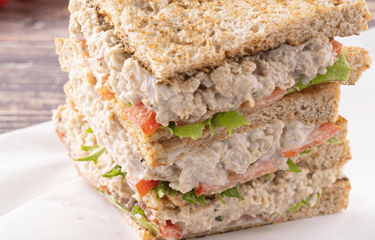Thai Union, one of the world’s largest seafood companies, has set its sights on further entering the plant-based seafood analog movement, with a view to becoming a leader in the sector, Nikkei has reported.
The Bangkok, Thailand-based company has centered its plant-based product research and development at its Global Innovation Center, which Thai Union expanded in 2016 at a cost of THB 300 million (USD 9.2 million, EUR 8 million).
"Decades of seafood experience and a strong culinary expertise have led us to a unique position to impact the plant-based seafood industry," Thai Union said on its website. "Driven by innovation, alternative protein technology and expertise, our applications span a wide space that are in varying stages of development. We have focused our internal efforts on plant-based proteins, such as alternative seafood and meats, while exploring emerging areas (insect proteins, lab-grown meats, etc.) through collaboration and investments in start-ups."
Maarten Geraets, a marketing and R&D executive at Nestlé for more than two decades, has been hired to lead the center’s alternative protein department.
Thai Union has "decided to become a strong player in the [plant-based meat] world, a leading player," Geraets told Nikkei.
Asia "accounts for roughly 60 percent of [plant-based seafood] consumption worldwide, giving Thai Union optimal geographic placement. Thai Union’s strategy in plant-based seafood will center around offering contracted services for alternative seafood manufacturing. The company has already received orders from European customers for alternative tuna and will begin shipping private-label products to the U.S. soon, according to Geraets.
Under a memorandum of understanding signed in July 2021, Thai Union and V Foods will collaborate to co-develop new plant-based products and support each other in their respective efforts to widen their domestic and international markets.
Thai Union aims to sell alternative shrimp in the near future, Geraets said, and it is working on creating a tuna substitute made from a mixture of soy and wheat.
"The classic staple food in every household with distinctive texture and flavor that you don’t even notice that they are plant-based," Thai Union said. "Hero ingredients for flaky tuna are not limited, nutritious sources of protein such as soy, wheat, and pea. Plus, our collaboration with unique flavor houses allows endless flavors – brine, oil, lemon and pepper, mayonnaise, chilli and garlic, tomato and basil, or even individually customization. Our plant-based tuna is available for various applications from tins to pouches."
Thai Union has also begun marketing its own plant-based seafood brand, including last year’s launch of the "OMG Meat" label in Thailand. The initial products offered under the brand are packaged crab- and fish-flavored shumai and nuggets.
There is a growing demand for sustainable seafood substitutes from consumers globally, which Thai Union is working to meet with its new products, Geraets said, and cell-based seafood manufacturers, including Singapore food-tech company Shiok Meats, which is producing cell-based shellfish, represent another form of competition.
"We believe that the [alternative] meat market is about eight years ahead" of alternative seafood, Geraets said. "We are innovating, we are pioneering a new segment, a new category, that has only just surfaced."
In January 2021, Thai Union invested in BlueNalu, a cellular aquaculture producer start-up out of San Diego, California, U.S.A. In April 2021, BlueNalu also signed two different memorandums of understanding (MoU) with Mitsubishi Corporation and Thai Union. BlueNalu said Thai Union’s expertise in market research, regulatory affairs, product design and development, manufacturing, and sales and distribution will help it to accelerate its roll-out of cell-cultured seafood products.
In July 2021, Thai Union’s Corporate Venture Capital (CVC) Fund joined other strategic and financial partners to invest in Israel-based Aleph Farms as part of its USD 105 million (EUR 89 million) Series B fundraising round.
Photo courtesy of Thai Union







